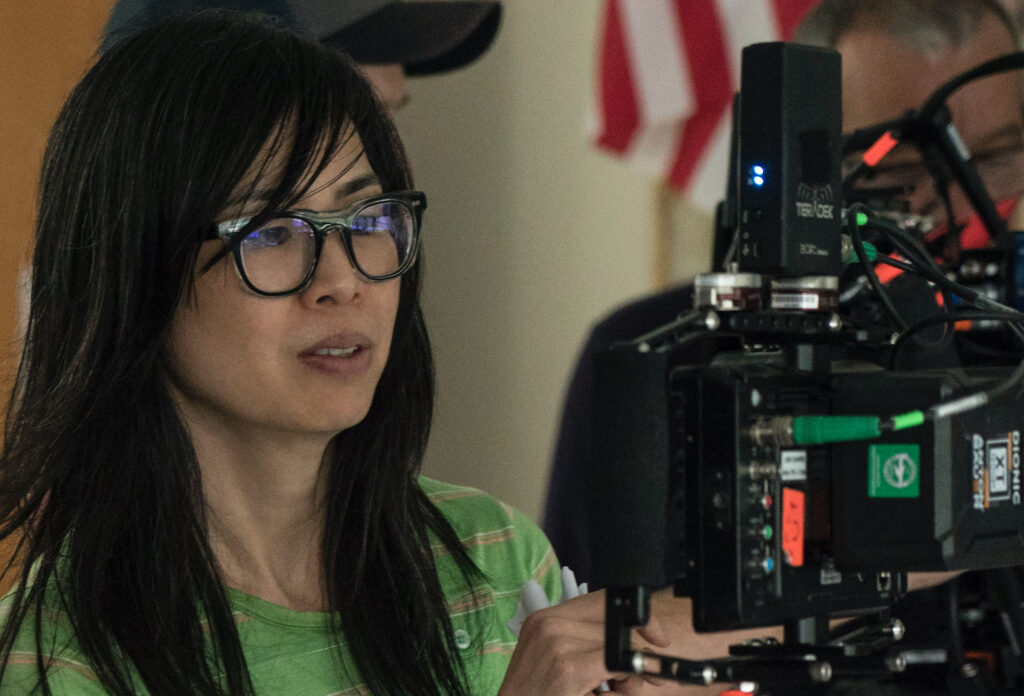Celebrating the work of filmmaker Alice Wu
The out Chinese American filmmaker speaks about why she took time out from the movie business, the meaning of love, getting older, and her return to the screen with Netflix hit The Half Of It.
Alice Wu is a Chinese-American film director and screenwriter whose circuitous journey in and out of filmmaking, and back again, has yielded two of the best movies dealing with young queer female experience. After earning a master’s degree in computer science at Stanford University, Wu designed software at Microsoft before writing the screenplay for Saving Face in a night class when she was in her late 20s. That fledgling effort was picked up for production by Will Smith and became a worldwide success in 2004. It told the story of Wilhelmina, a young Chinese American surgeon who struggles to come out to her single scandalously pregnant mother and it was manna from heaven for minorities everywhere who felt they were not seen. Sixteen years later, Wu had another hit with The Half Of It, which centers on a young Asian American lesbian student who helps her high school football player friend woo the girl they both secretly love.
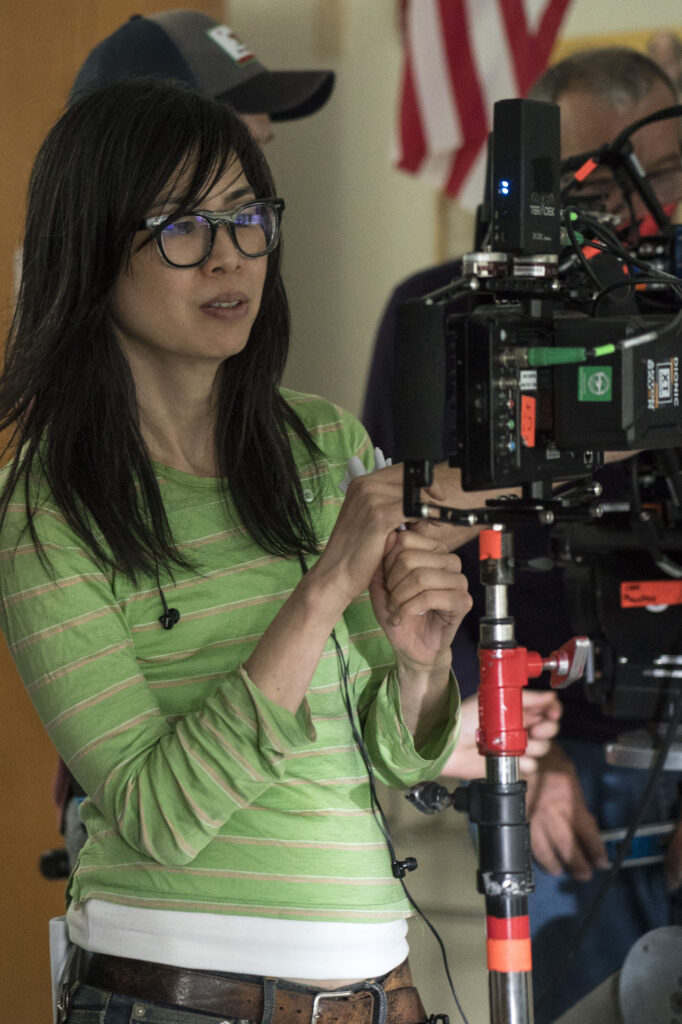
When I interview Alice Wu via Zoom, she is literally writing and taking calls from inside the closet of her Taiwan hotel room where she is quarantining for 15 days. The irony is not lost on her after bravely coming out to her mom in 1989, and then to the world via the big screen. Here are excerpts of our conversation…
Can you tell us why you were in Taiwan during the pandemic?
Alice Wu: I had been very strictly sheltered in place in San Francisco because I have an elderly mother who is very high risk. I left the [film] industry and moved to San Francisco about 10 years ago to take care of her because she had a major health event. And then I just stayed. She’s been very careful not leaving her house. Then a few months ago I was like, she’s 75, I don’t want her to live her life in this box for two years just because the US doesn’t seem to have gotten its stuff together on how to deal with the virus. I applied for a visa to come back to Taiwan, which is where my parents grew up. She’s going to stay on, I’m going to stay for two or three months then head home. In Taiwan, everyone wears masks but they’re living their lives. They locked down back in February for a few weeks. It feels like they have everything in place to deal with a second wave. Whereas honestly in the States, it’s just a mess. My mom is an elderly immigrant woman and the reality of most hospitals is if it came to this case where they’re figuring out who gets the respirator, she’s super low on the list. In Taiwan she would get a decent standard of care.
You’re a good daughter. But when you came out to your mom you had some difficulty.
Alice: It was tough but one has to remember that, I’m 50, and when I came out to her I was 19, and that was 1989 and I’d just come out to myself a couple of months before. It was very hard for her. She was like, If you ever want to take a lover I don’t ever want to see you again. And that sounds so harsh in the context of now, I know it still happens now, but it seems like there’s more queer acceptance now than there was in 1989. But in 1989 I didn’t even know any other gay people. There was not the wealth of media stories and access on the internet to queer people.
As painful as it was, I understood my mom and how much she and my dad sacrificed for me to have the life I have.
I am by nature not a rebellious person so if there was any chance — this is how I know I am super gay — because if there was any possible way that I could fall in love with a guy, marry, I would have done it. Because the last thing I want to do is cause pain to my parents. I think for my mom, making this sudden announcement that I’m gay, was a selfish act. It took my mom… I just didn’t hear from her for a few years. When I did, it was still a big struggle for many years, it was a topic we couldn’t talk about and then we did it evolved into fighting. She was always nice to my girlfriends but on some level she just believed I would end up with a man.
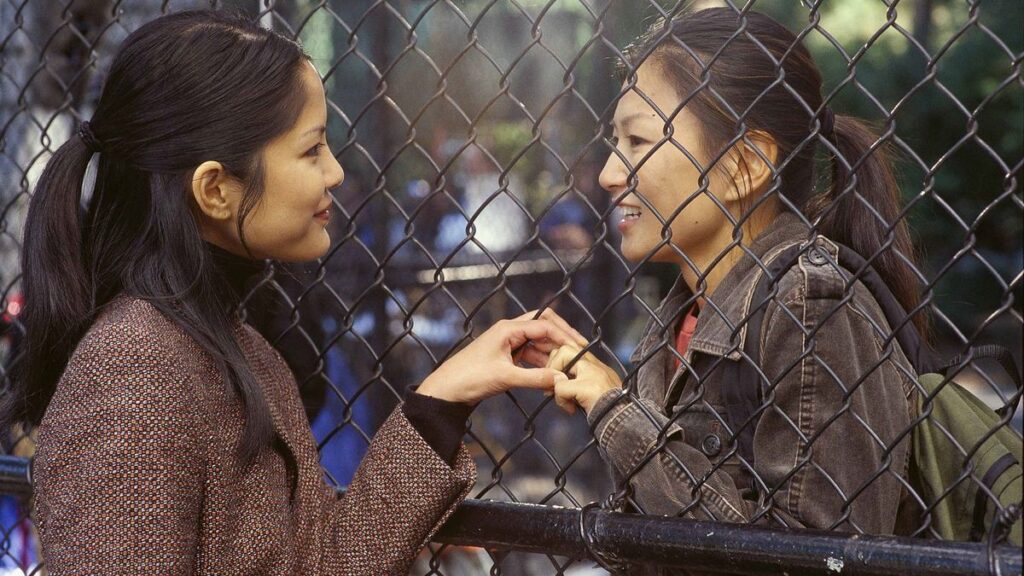
At what point did your mom accept you?
Alice: It really wasn’t until my first film Saving Face came out that it really hit her, acceptance happened. And the process of making [the film], and once it came out, I think also, if I am my mom, the scariest thing is going to be what is the community going to think and what could be more… could I possibly have come out in a louder way? I was 34 and turned 35 when the film came out. it was immediately all of her friends were like, Oh… I think the thing that really helped was, not that there wasn’t some homophobia there, but my mom didn’t lose any good friends. To her credit she also once she realized it was going to happen she also made her piece with the fact that my film was coming out which was a huge act of love on her part. And then the good news was actually that film was embraced by the Chinese-American press and a lot of the Taiwanese and Chinese community rallied around the film which was not something I expected. I think that really helped my mom come to terms and really accept that this was going to be the life I led.
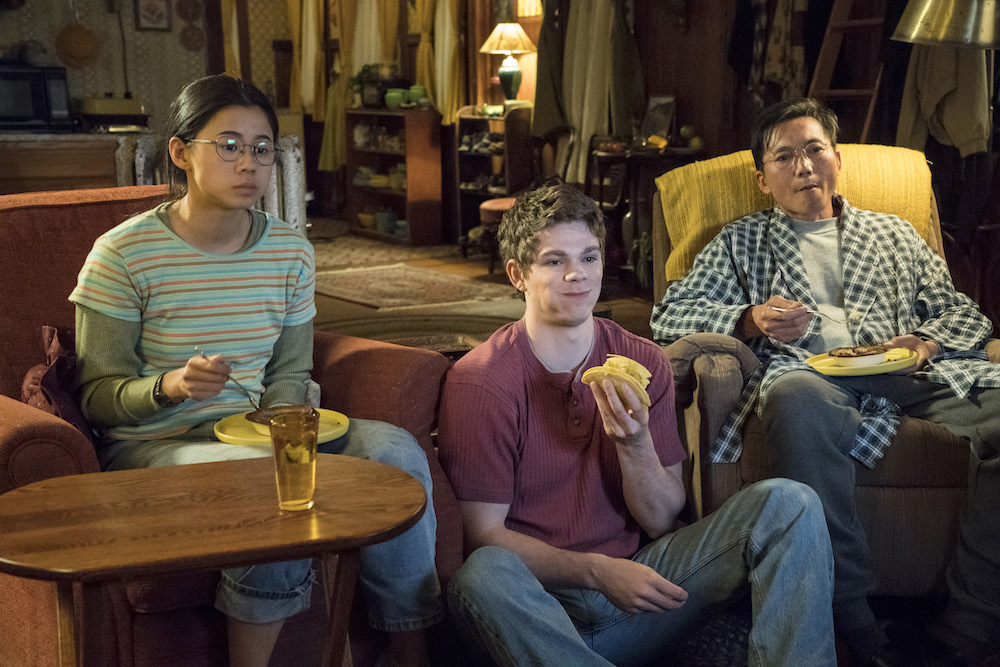
As a queer female storyteller, where did your script for The Half Of It come from?
Alice: I write the stuff I do, I don’t think I’ve changed in 15 years in that I don’t think Saving Face and The Half Of It are different films and the reason they might share similar DNAs is they’re both very me but the storylines are not what I went through. I always fictionalize the storylines. I neither grew up in Flushing nor in Eastern Washington State. My mom is neither pregnant or dead, but I’m dealing with emotions and themes each time I’m asking an emotional question. With Saving Face I think I was asking the question: Is there a way to be a good daughter if you already feel you have fundamentally failed? I was writing that also for my mom because I wanted her to believe that her life wasn’t over, she could actually have love.
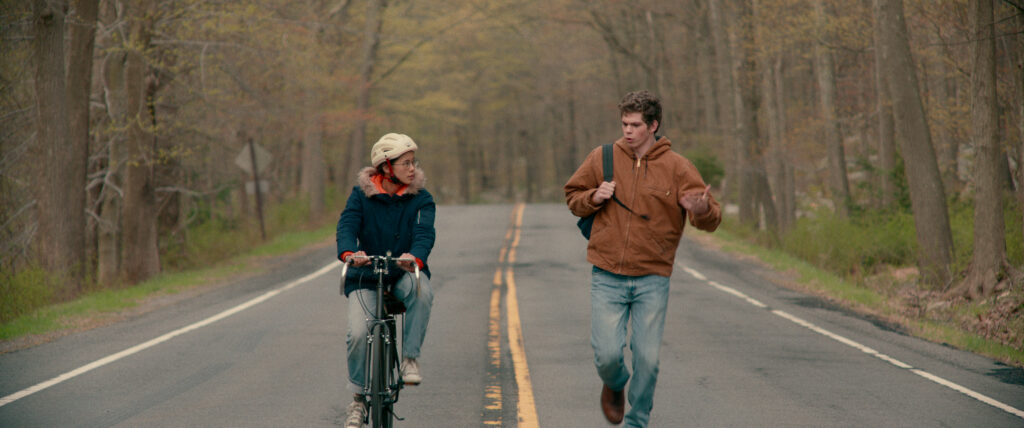
The Half Of It was me trying to understand something about the nature of love. My first true heartbreak after I came out was not over a girl, it was actually a straight guy who was my best friend where we started to slowly lose our friendship. I was trying to understand something about society where we exalt romantic love. Personally, I probably have been someone who assumes romantic love is the most important love for most of my life until more recently. It is just one of many kinds of love that are equally important.
The discussions about women and diversity in the film industry intensified during your career hiatus. Have they impacted you?
Alice: I’m not from within the industry, I only work on and write things that matter to me. I’m not somebody who feels I must make a film no matter what. I’m somebody who, if I feel deeply about something then I’ll want to make that thing. The films are going to come out of a place that emotionally matters deeply to me for some reason. Given that, I know that 15 years ago nobody was saying, What is the personal story you’re working on next?
Everybody was like, How do we make you the next big romantic comedy filmmaker but implicit in that they meant straight white romantic comedy filmmaker.
I don’t want to work on something that’s not worth the sacrifice because there’s going to be a sacrifice to how much time I’m going to spend with my family, my friends, even just one’s own physical wellbeing. I think the big buzzword now is ‘original voices,’ which is funny to say because that should always have been true. The advent of so many more ways to get your content out there with the streamers, now everyone’s realizing, Oh there are all these various communities who will respond if you give them something specific. The lovely thing is that it turns out if you make a story well, people from all sorts of communities might respond to something that otherwise might seem specific.
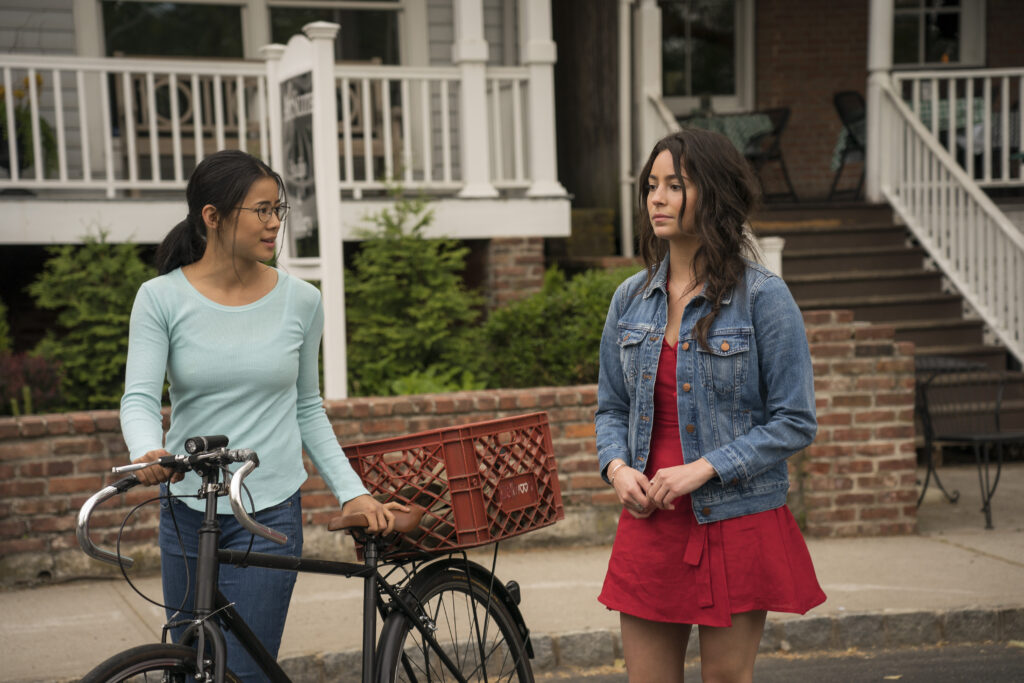
As a woman getting older, what other wisdom has come to you?
Alice: I had a few fun years after Saving Face came out but they also a frustrating few years where I would always get these gigs and I’d work on them but I realized about myself that I am simultaneously very stubborn creatively but I’m a total people pleaser and when you have those two qualities it’s very hard to be in an industry like Hollywood where it feels like there’s so many different voices and there’s so many people you want to please and it just feels hard to navigate one’s own center. Leaving the industry — one silver lining to my mom getting sick, is that it made it very clear to me what my priorities are. Like being in San Francisco, it became very clear to me, Oh I see, this is who I am, this is what matters. So by the time I wrote The Half Of It — and I honestly thought it would take forever to get made — I was just older. I’m still very similar as a filmmaker but I just give fewer fucks. It’s this weird thing where simultaneously you want to care deeply but you want to give fewer fucks and you want to know exactly which fucks to give. As one gets older you get better at figuring that out.
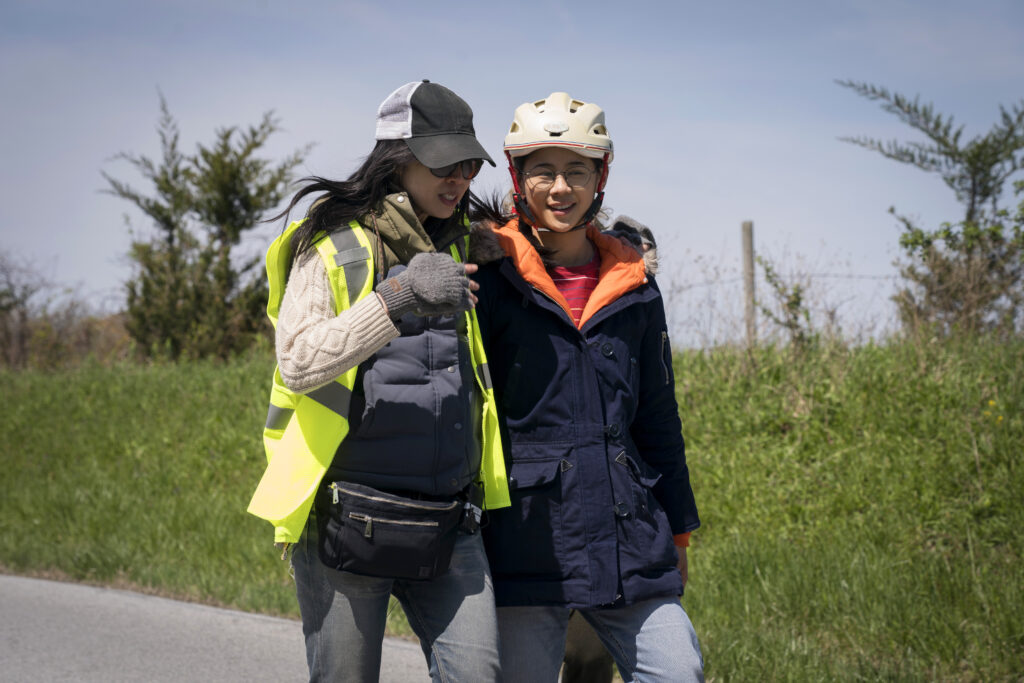
Your casts are multigenerational but your protagonists are young people. What do you love about working with young people?
Alice: I particularly love working with young people. What’s wonderful about newer actors is that there’s a level of openness, a willingness to try things, and there’s something so fun about that. Specifically, Leah (Lewis) and Daniel (Diemer) and Alexxis (Lemire), they were so willing to go all the places that I wanted to try. I got to work with each of them separately to build those characters and just watching them take them on and really find those characters within themselves, and then the conversations we how each of them talked about how it was starting to shape their sense of who they themselves were. It was incredibly gratifying.
My job is to make sure I create the circumstances where they feel safe enough to do their work. If I do my job right, then they get to go more deeply to a place not just for the work, but I like to think I only pick projects that I think in the process of making it I will transform in a way that I will be pleased with. I like to think that the people I work with — I like to feel there is some level of transformation or growth that they also experience by being part of the project.
Lesbian movies — it’s not really a film genre but the gay female community is very passionate about films like Carol and more recently Portrait of a Lady on Fire, Ammonite and Happiest Season. Why do you think we take these films to heart?
Alice: Everybody wants to see visions of love and connection. For many of us we didn’t get it — especially if you’re older — you didn’t get it growing up, so there’s a sense of being a little bit starved for it.
Watch The Half of It on Netflix. Watch the trailer here.

